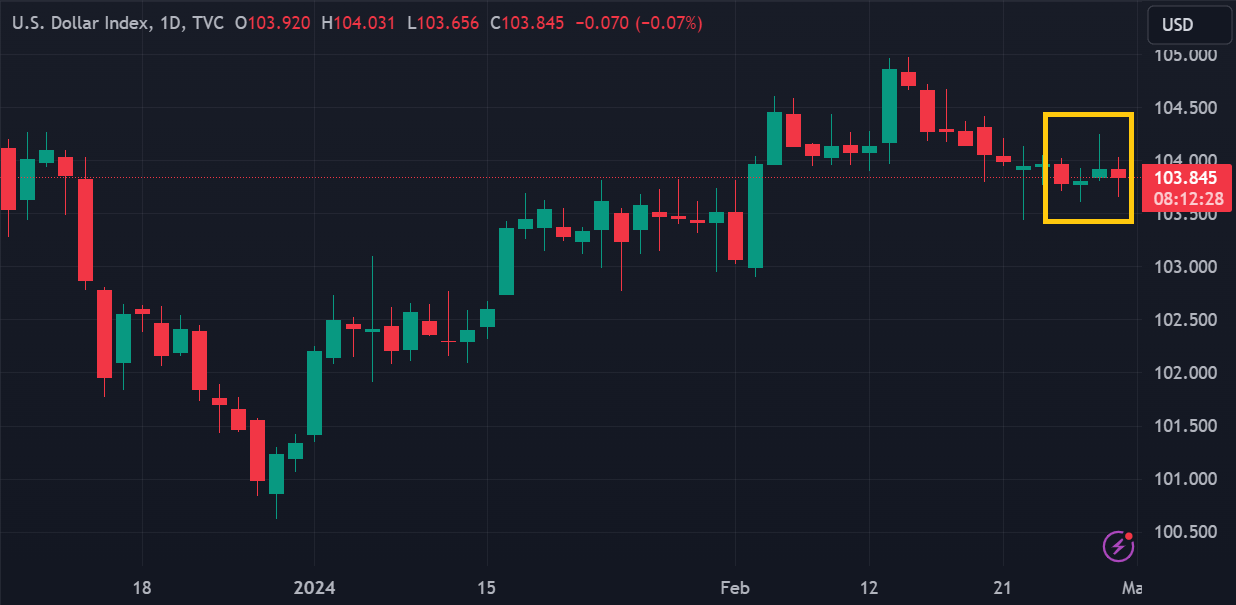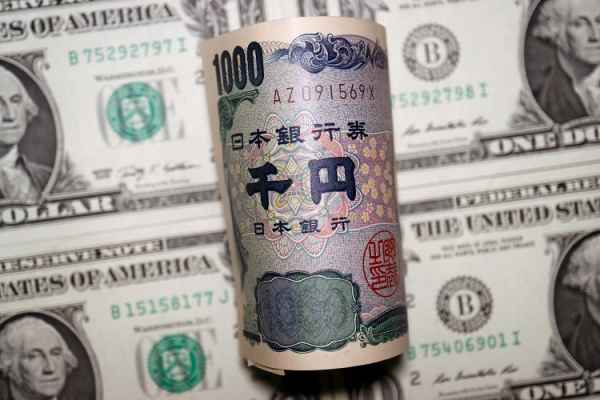The PCE data matched the consensus estimate exactly, so the US Dollar rate remained within a limited range.
Market participants have been anticipating the release of the Personal Consumption Expenditure (PCE) data since the beginning of the week, fearing the possibility of an unexpected actual figure. However, tonight's release (29/February) was precisely the same as the consensus estimate. The situation resulted in the US Dollar Index (DXY) continuing to be contained within a limited range below 104.00.

The US Bureau of Economic Analysis reported a Core PCE Price Index growth of 0.4% in January 2024, in line with previous estimates. Its annual growth also slowed, as expected, from 2.9% to 2.8%.
The Core PCE Price Index is the main inflation reference in Federal Reserve policymaking. With annual growth still well above the 2% target, it is too early for the Fed to cut interest rates anytime soon. At the same time, a sustained slowdown in inflation signals that the Fed may have to start lowering interest rates in the next few months.
Most market participants are increasingly convinced that the Federal Reserve will only start cutting interest rates in June. However, there are also some expectations for a rate cut starting in May. Overall, the forecast has barely changed compared to before the PCE data release.
The market seemed reluctant to respond to the PCE data release. Major currency pairs fluctuated minimally when the news was written in the middle of the New York session, except for USD/JPY, which fell around 0.75% below the psychological threshold of 150.00.
The US dollar also weakened against its neighboring currency. USD/CAD failed to break its two-month high because of superior-than-expected Canadian GDP data.
The US Dollar only marginally strengthened against the Euro, Pound Sterling, and Kiwi Dollar. Before tomorrow's Eurozone inflation data release, EUR/USD was weighed down by weakening German inflation. GBP/USD was indecisive ahead of next week's Spring Budget announcement. Meanwhile, the Kiwi Dollar continues to be battered by yesterday's New Zealand central bank announcement.

 Dedicated FREE FOREX VPS
Dedicated FREE FOREX VPS Free FOREX Virtual Private Server
Free FOREX Virtual Private Server MT4 Demo Contest, Get $500
MT4 Demo Contest, Get $500 Sign Up for an Account, Claim 60% Deposit Bonus
Sign Up for an Account, Claim 60% Deposit Bonus Free MT4/MT5 VPS 2024
Free MT4/MT5 VPS 2024 Send E-mail and Get Free Merchandise
Send E-mail and Get Free Merchandise $1K Refer a Friend Bonus for Pepperstone Pro clients
$1K Refer a Friend Bonus for Pepperstone Pro clients Maximize Your Earnings with 100% Deposit bonus
Maximize Your Earnings with 100% Deposit bonus Trade to Win, $5,000 Monthly Demo Contest
Trade to Win, $5,000 Monthly Demo Contest Claim 30% + 15% Deposit Bonus from LiteFinance
Claim 30% + 15% Deposit Bonus from LiteFinance






